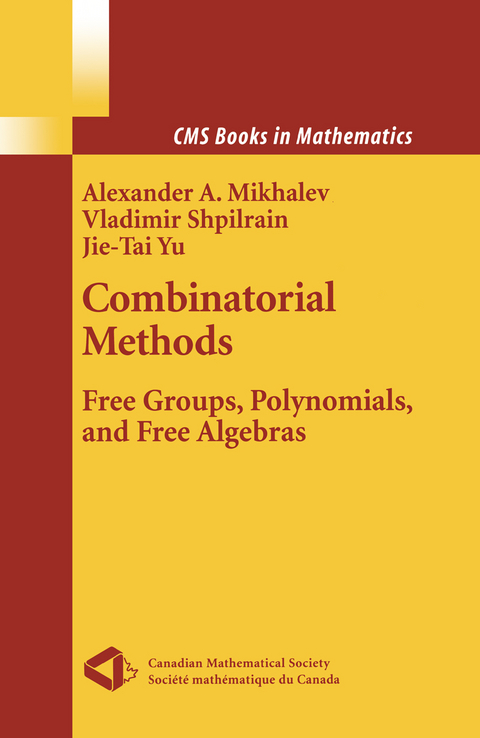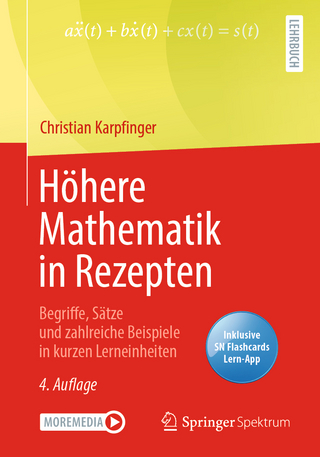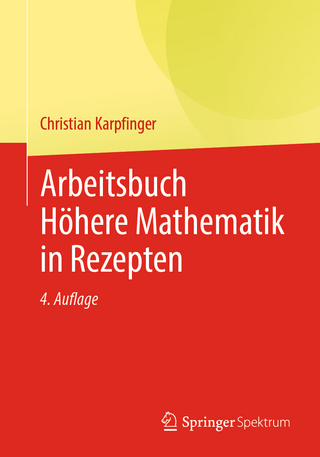
Combinatorial Methods
Free Groups, Polynomials, and Free Algebras
Seiten
2003
Springer-Verlag New York Inc.
978-0-387-40562-9 (ISBN)
Springer-Verlag New York Inc.
978-0-387-40562-9 (ISBN)
This book is about three seemingly independent areas of mathematics: combinatorial group theory, the theory of Lie algebras and affine algebraic geometry. Indeed, for many years these areas were being developed fairly independently. Combinatorial group theory, the oldest of the three, was born in the beginning of the 20th century as a branch of low-dimensional topology. Very soon, it became an important area of mathematics with its own powerful techniques. In the 1950s, combinatorial group theory started to influence, rather substantially, the theory of Lie algebrasj thus combinatorial theory of Lie algebras was shaped, although the origins of the theory can be traced back to the 1930s. In the 1960s, B. Buchberger introduced what is now known as Gröbner bases. This marked the beginning of a new, "combinatorial", era in commu tative algebra. It is not very likely that Buchberger was directly influenced by ideas from combinatorial group theory, but his famous algorithm bears resemblance to Nielsen's method, although in a more sophisticated form.
I Groups.- 1 Classical Techniques of Combinatorial Group Theory.- 2 Test Elements.- 3 Other Special Elements.- 4 Automorphic Orbits.- II Polynomial Algebras.- 5 The Jacobian Conjecture.- 6 The Cancellation Conjecture.- 7 Nagata’s Problem.- 8 The Embedding Problem.- 9 Coordinate Polynomials.- 10 Test Polynomials.- III Free Nielsen-Schreier Algebras.- 11 Schreier Varieties of Algebras.- 12 Rank Theorems and Primitive Elements.- 13 Generalized Primitive Elements.- 14 Free Leibniz Algebras.- References.- Notation Index.- Author Index.
| Reihe/Serie | CMS Books in Mathematics |
|---|---|
| Zusatzinfo | XII, 315 p. |
| Verlagsort | New York, NY |
| Sprache | englisch |
| Maße | 155 x 235 mm |
| Themenwelt | Mathematik / Informatik ► Mathematik ► Algebra |
| Mathematik / Informatik ► Mathematik ► Geometrie / Topologie | |
| Naturwissenschaften | |
| ISBN-10 | 0-387-40562-3 / 0387405623 |
| ISBN-13 | 978-0-387-40562-9 / 9780387405629 |
| Zustand | Neuware |
| Informationen gemäß Produktsicherheitsverordnung (GPSR) | |
| Haben Sie eine Frage zum Produkt? |
Mehr entdecken
aus dem Bereich
aus dem Bereich
Mathematik von Studierenden für Studierende erklärt und kommentiert
Buch | Softcover (2024)
Springer Spektrum (Verlag)
34,99 €
Begriffe, Sätze und zahlreiche Beispiele in kurzen Lerneinheiten
Buch | Softcover (2022)
Springer Spektrum (Verlag)
54,99 €
Buch | Softcover (2022)
Springer Spektrum (Verlag)
39,99 €


